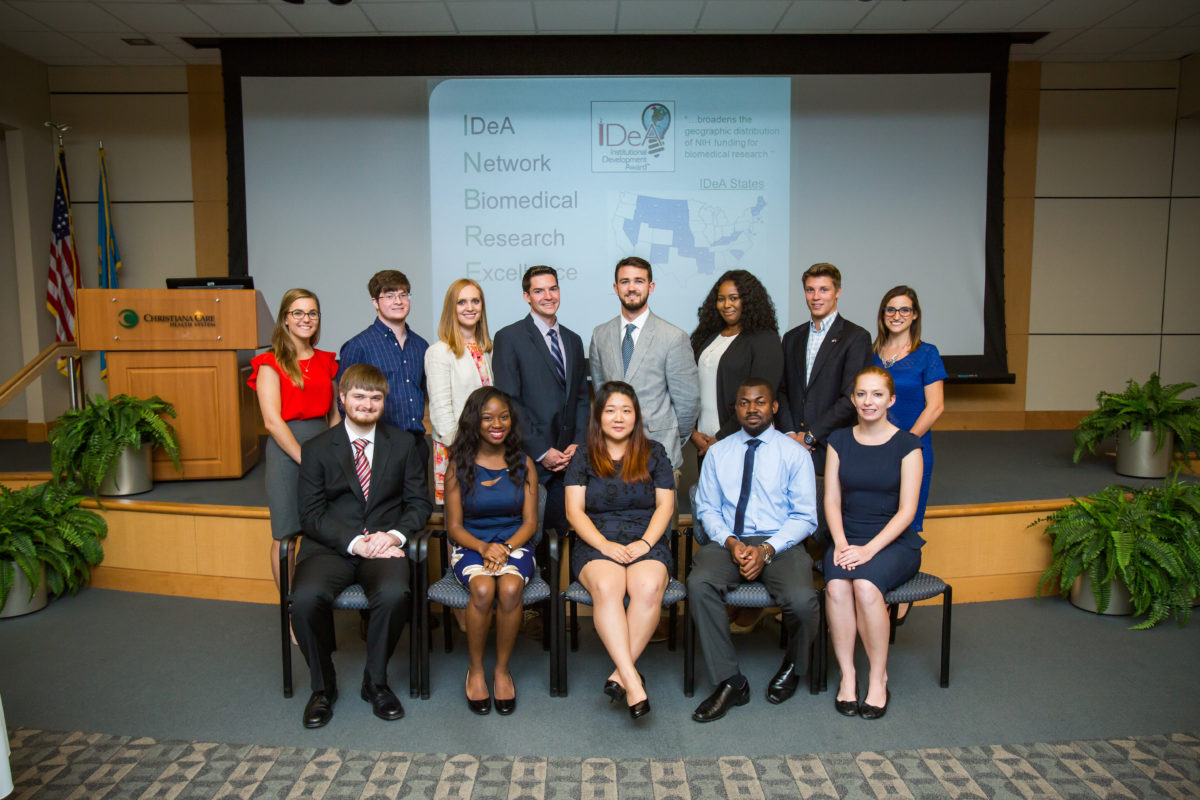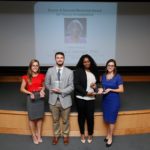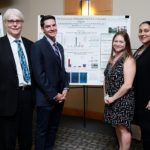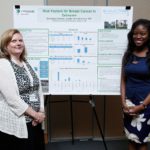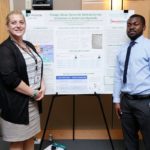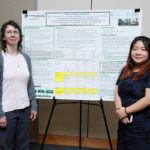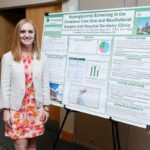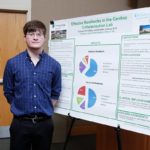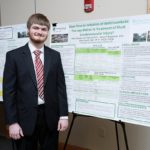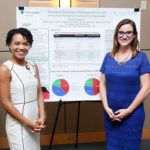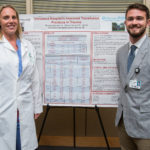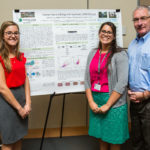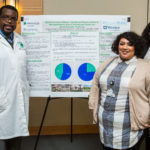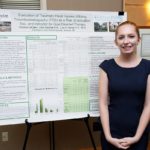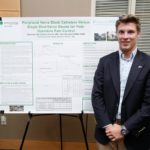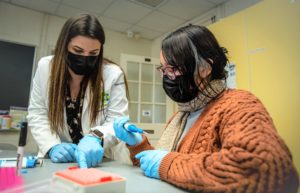At the 2016 INBRE Scholars Research Day & Luncheon, Aug. 19 at the John H. Ammon Medical Education Center, 13 student researchers presented projects that represented a summer of intense study and collaboration with Christiana Care mentors.
The summer research program is a collaboration between Christiana Care’s Value Institute and the Delaware IDeA Network of Biomedical Research Excellence (INBRE), which is funded by the National Institutes of Health and the state of Delaware. The four broad aims of INBRE are: to foster a statewide network for biomedical research; develop independent and interdependent researchers and institutions; cultivate Delaware INBRE initiatives; and enhance our state’s knowledge of biomedical science and technology.
Eleven students worked through INBRE, while two participated through the Value Institute’s Harrington Fund.
“What’s most rewarding is watching their growth,” said LeRoi Hicks, M.D., MPH, FACP, vice chair, Department of Medicine and physician leader of the Acute Medicine service line. Dr Hicks worked with Destiny Hollis, a biology major at Wesley College. “This young lady learned a semester’s worth of master’s level epidemiology in one summer,” he said.
Their research analyzed the prescription of opioids for patients who had been treated for suspected drug overdoses.
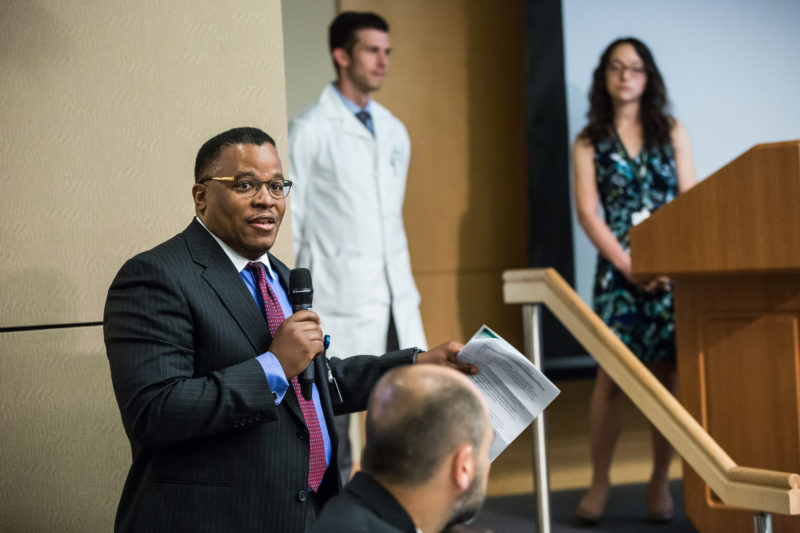
Several of the student research projects provided opportunities for students to observe Christiana Care’s staff deliver care.
In one such study, Delaware Technical Community College histotechnology student Edward McCaffery joined mentor Andrew Doorey, M.D., interventional cardiologist and Value Institute scholar, in an investigation of the adoption of a communication method called a “readback” in the cardiac catheterization laboratory. The term describes the practice of a listener repeating the speaker’s words — in this case, the name of a drug, the unit of measurement and the number of units — to eliminate miscommunication.
The study, a continuation of a 2015 INBRE project, recorded improvements in how often lab staff performed complete readbacks compared to the previous year.
“It shows that we have a team that wants to make things better,” McCaffery said.
Scott Siegel, Ph.D., Christiana Care’s institutional lead for Delaware INBRE, said studies like these provide an opportunity for the complexities of modern medicine to be translated into practice.
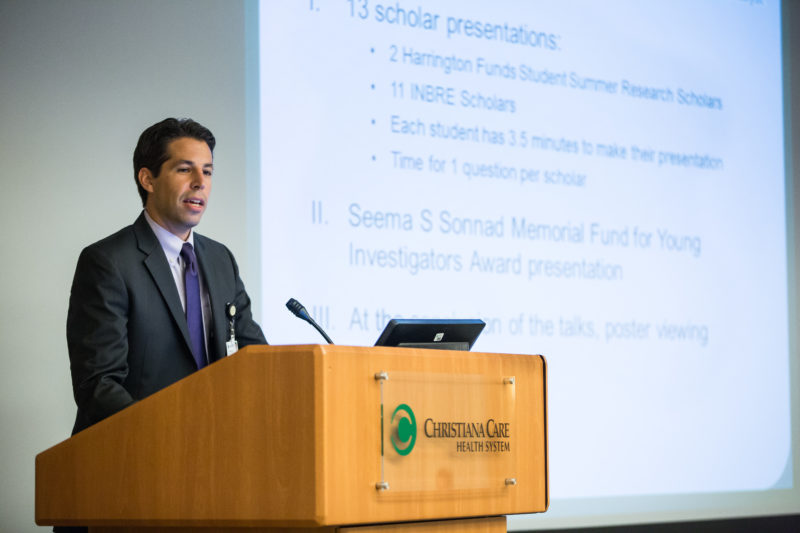
“Health care has become so complex. These kinds of studies provide the biggest opportunities to improve the delivery of care,” he said.
Kelly Banas, a University of Delaware medical laboratory science major, paired with Eric Kmiec, Ph.D., director of the Gene Editing Institute, to study the use of a breakthrough gene editing tool called CRISPR. The technology was named the 2015 Breakthrough of the Year by Science magazine.
“Here we are at Christiana Care, literally at the forefront of that discovery,” said Dr. Siegel.
Banas and Dr. Kmiec were able to hone a synthetic technique — meaning no biological materials were required — that allowed them to perform a targeted edit of a single RNA base pair that caused a tumor cell to glow green. Fluorescence is important in gene editing because it is a marker that demonstrates that the intended edit to a gene has taken effect.
The lab is an intense environment in which not all undergraduates can flourish, Dr. Kmiec said. But Banas did.
“She was relentless,” he said.
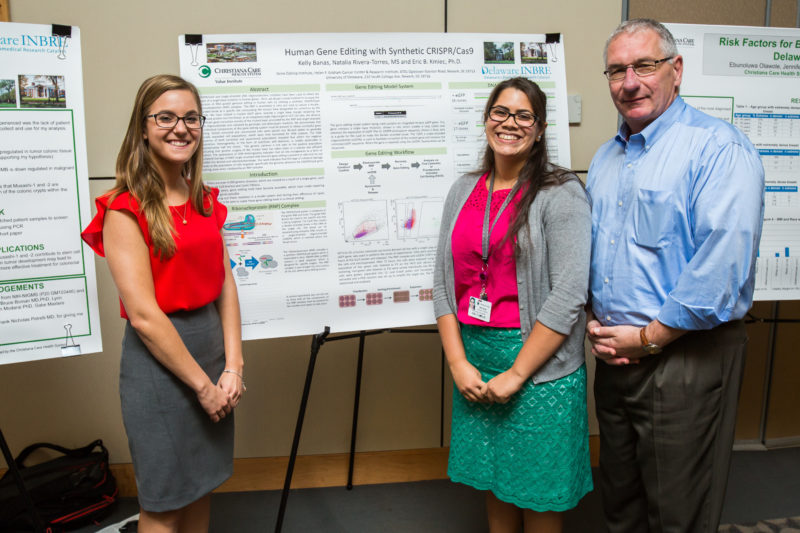
The INBRE collaboration also serves as a reminder to Christiana Care providers that research is an important part of the health system’s mission, said Lauren Pigeon, CPhT, research project manager.
“This shows others that research can be done in 10 to 12 weeks of time,” she said.
The luncheon was also an opportunity to honor and remember Seema Sonnad, Ph.D., former director of health services research at the Value Institute. She suffered a fatal cardiac arrhythmia while running an ultra-marathon in 2015.
Four students were chosen to receive the Seema S. Sonnad Memorial Fund for Young Investigators Award. The students were rated across several dimensions, especially their outspokenness on important issues.
“I can think of no better way to honor and remember Seema,” said Timothy Gardner, M.D., medical director of the Center for Heart & Vascular Health and executive director of the Value Institute.
The winners were:
- Gold: Thomas Marconi, University of Delaware.
- Silver: Kelly Banas, University of Delaware.
- Bronze: Destiny Hollis, Wesley College, and Kristen Gish, Delaware Technical Community College.
Photo gallery: 2016 INBRE Scholars Research Day
- Award winners Kelly Banis, Thomas Marconi Jr., Destiny Hollis and Kristen Gish.
- Student: Ryan Kowash. Mentors: Bruce Boman, M.D., Ph.D., Shirin Modarai, Ph.D. and Lynn Opdenaker, Ph.D. Research Topic: Discovery of new markers for colon cancer stem cells
- Student: Ebunoluwa Olawole. Mentor: Jennifer Sims-Mourtada, Ph.D. Research Topic: Identification of risk factors for aggressive breast cancers within the state of Delaware
- Student: Edward Addison. Mentor: Kristen Miller, DrPH Research Topic: Standardization of Operating Room to Intensive Care Unit Handoffs Poster Title: Change Ahead: Research Methods for the Evaluation of Acute Care Handoffs
- Student: Jiyun Choi. Mentor: Melanie Chichester, BSN, RNC-OB, CPLC Research Topic: OB Door-to-drug: where are the opportunities for improvement in achieving antenatal steroid administration?
- Student: Ashtyn Bentley. Mentors: Daniel Meara, M.D., DMD, MS, FACS and Eric Scotland, DDS Research Topic: Hyperglycemia Screening in a Busy Oral and Maxillofacial Surgery Hospital Clinic
- Student: Edward McCaffery. Mentor: Andrew Doorey, M.D. Research Topic: Effective communication in the cardiac catheterization laboratory and read-backs
- Student: Peter Zdunek. Mentors: Mark Cipolle, M.D., Ph.D., FACS, FCCM and Maxwell Braverman, D.O. Research Topic: Blunt carotid and vertebral artery injury: Impact of computed tomography angiogram screening in traumatically injured adults
- Student: Kristen Gish. Mentor: Dominique Comer, PharmD, MS Research Topic: Prospective study of postpartum women under a pilot Medicaid policy where long acting reversible contraception is provided at no cost examining breast feeding and birth control outcomes
- Student: Thomas Marconi. Mentor: Sherry Sixta, M.D. Research Topic: Retrospective and prospective outcomes of trauma resuscitation Pre and Post implementation of thromboelastography
- Student: Kelly Banas. Mentor: Eric Kmiec, Ph.D., (Pictured with Natalia Rivera-Torres, Ph.D.) Research Topic: Gene editing as a therapeutic approach to Sickle Cell Disease and a basis for studying chromosomal translocations in leukemia
- Student: Destiny Hollis. Mentors: LeRoi Hicks, M.D., MPH, FACP; Alexandra Mapp m MPH. Research Topic: Establishing a ‘real-time’ (during hospitalization) registry of Opioid overdose patients at highest risk of rehospitalization for engagement in an integrated care management program to reduce their hospital utilization
- Student: Chelsea LeCates. Mentor: Luis Cardenas, D.O., Ph.D. Research Topic and Poster Title: Evaluation of Traumatic Head Injuries Utilizing Thromboelastography (TEG) as a Risk Stratification Tool, and Indicator for Goal Directed Therapy
- Student: Spencer Hall. Mentor: Dmitry Gorelik, M.D. Research Topic and Poster Title: Peripheral Nerve Block Catheters Versus Single Shot Nerve Blocks for Post-Operative PainControl
